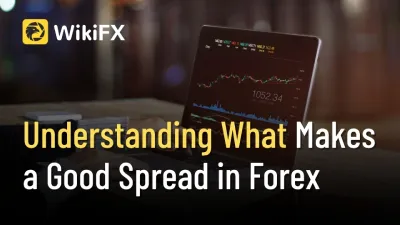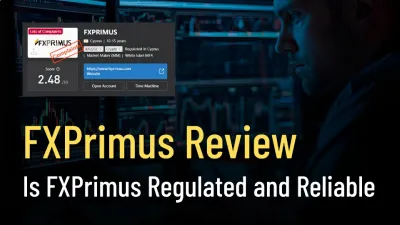简体中文
繁體中文
English
Pусский
日本語
ภาษาไทย
Tiếng Việt
Bahasa Indonesia
Español
हिन्दी
Filippiiniläinen
Français
Deutsch
Português
Türkçe
한국어
العربية
ASIC Sues American Express Australia for Credit Card TMD Violations
Abstract:"ASIC has now taken a number of steps under the design and distribution regime, including the issuance of over 20 temporary stop orders." This regime marks a new chapter in the regulation of financial goods in Australia, with the goal of improving consumer outcomes. ASIC's objective is to optimize these enhanced safeguards and see the DDO regime's long-term advantages achieved."

In its first court case, the Australian Securities and Investments Commission imposed civil penalties on American Express Australia for violations of design and distribution rules.
The lawsuit argues that two credit cards issued by Amex and co-branded with store David Jones (the credit cards) did not comply with Australian regulatory standards.
Firms must declare who the credit cards are intended for.
Amex was expected to prepare a target market decision (TMD) explaining who the credit cards would be suited for and how the cards should be distributed under the design and distribution duties.
Credit card issuers are also required to examine credit card TMDs if they become aware of an incident or scenario that indicates the TMD is no longer suitable.
The ASIC case is made up of two parts. First, ASIC claims that Amex's TMDs were not limited to customers wishing to make credit transactions with a card that awarded points or other incentives.
According to ASIC, by February 2022, Amex was aware that the cancellation rates for consumers who applied for credit cards in David Jones stores were high and significantly higher than cancellation rates for credit cards applied for online; and
Amex was aware that some consumers were confused about whether they had applied for a loyalty card or a credit card, indicating that the TMDs were not appropriate and necessitating Amex.
Despite this, ASIC maintains that Amex will continue to issue credit cards until July 5, 2022.
“The design and distribution responsibilities contain a consumer-centric strategy for financial product issuers and distributors.” Product suppliers must monitor and assess whether customers are getting goods that meet their demands, and product governance cannot be approached with a “set-and-forget attitude.” “It is vital that providers react to poor results by changing their practices,” said ASIC Deputy Chair Sarah Court. “ASIC has now taken a number of steps under the design and distribution regime, including the issuance of over 20 temporary stop orders.” This regime marks a new chapter in the regulation of financial goods in Australia, with the goal of improving consumer outcomes. ASIC's objective is to optimize these enhanced safeguards and see the DDO regime's long-term advantages achieved.
Background
DDO requires enterprises to create financial solutions that satisfy the demands of customers and distribute those goods in a targeted way. A TMD is a crucial necessity under DDO. It is a legally required public document that specifies the kind of customers for whom a financial product is likely to be acceptable (target market) as well as details about the product's distribution and evaluation.
ASIC is conducting targeted monitoring to determine if product issuers and distributors are in compliance with DDO. Where corporations are not acting appropriately, ASIC may take swift action under the DDO to interrupt bad behavior and avoid possible consumer damage.
According to ASIC's complaint, the David Jones Amex Card and David Jones Amex Platinum Card were co-branded credit cards sold via David Jones department shops and online from August 2008 to July 2022 and September 2012 to July 2022, respectively.
Stay tuned for more Forex Regulatory news.
Download the WikiFX App from the App Store or Google Play Store to stay updated on the latest news.

Disclaimer:
The views in this article only represent the author's personal views, and do not constitute investment advice on this platform. This platform does not guarantee the accuracy, completeness and timeliness of the information in the article, and will not be liable for any loss caused by the use of or reliance on the information in the article.
Read more

FXPIG Exposed: Traders Report Withdrawal Denials, Fund Scams & Regulatory Flags
Do you face massive losses due to astonishing spreads at FXPIG? Have you witnessed multiple trade executions by the Georgia-based forex broker even though you wanted to execute a single order? Has this piled on losses for you? Is the FXPIG withdrawal too slow? Maybe your trading issues resonate with some of your fellow traders. In this FXPIG review article, we have shared these issues so that you can introspect them thoroughly before deciding on the best forex trader.

Understanding What Makes a Good Spread in Forex
Find out what a good spread in forex trading is, typically between 0 to 5 pips, and why it matters for traders aiming to reduce expenses.

Does WealthFX Generate Wealth or Losses for Traders? Find Out in This Review
The name WealthFX sounds appealing for all those wishing for a rewarding forex journey. However, behind the aspiring name are multiple complaints against the Comoros-based forex broker. These trading complaints dampen the broker’s reputation in the forex community. In this WealthFX review article, we have shared some of these complaints here. Take a look!

FXPrimus Review: Is FXPrimus Regulated and Reliable for 2025?
FXPrimus is a CySEC-regulated forex broker offering MT4, MT5, and WebTrader with flexible leverage and diverse trading instruments since 2009.
WikiFX Broker
Latest News
150 Years Of Data Destroy Democrat Dogma On Tariffs: Fed Study Finds They Lower, Not Raise, Inflation
The Debt-Reduction Playbook: Can Today's Governments Learn From The Past?
FIBO Group Ltd Review 2025: Find out whether FIBO Group Is Legit or Scam?
Is INGOT Brokers Safe or Scam? Critical 2025 Safety Review & Red Flags
Trillium Financial Broker Exposed: Top Reasons Why Traders are Losing Trust Here
Amillex Withdrawal Problems
IEXS Review 2025: A Complete Expert Analysis
IEXS Regulation: A Complete Guide to Its Licenses and Safety Warnings
Oil and gas giant Wood plc sold to Dubai engineering firm
FONDEX Review: Do Traders Really Face Inflated Spreads & Withdrawal Issues?
Currency Calculator




